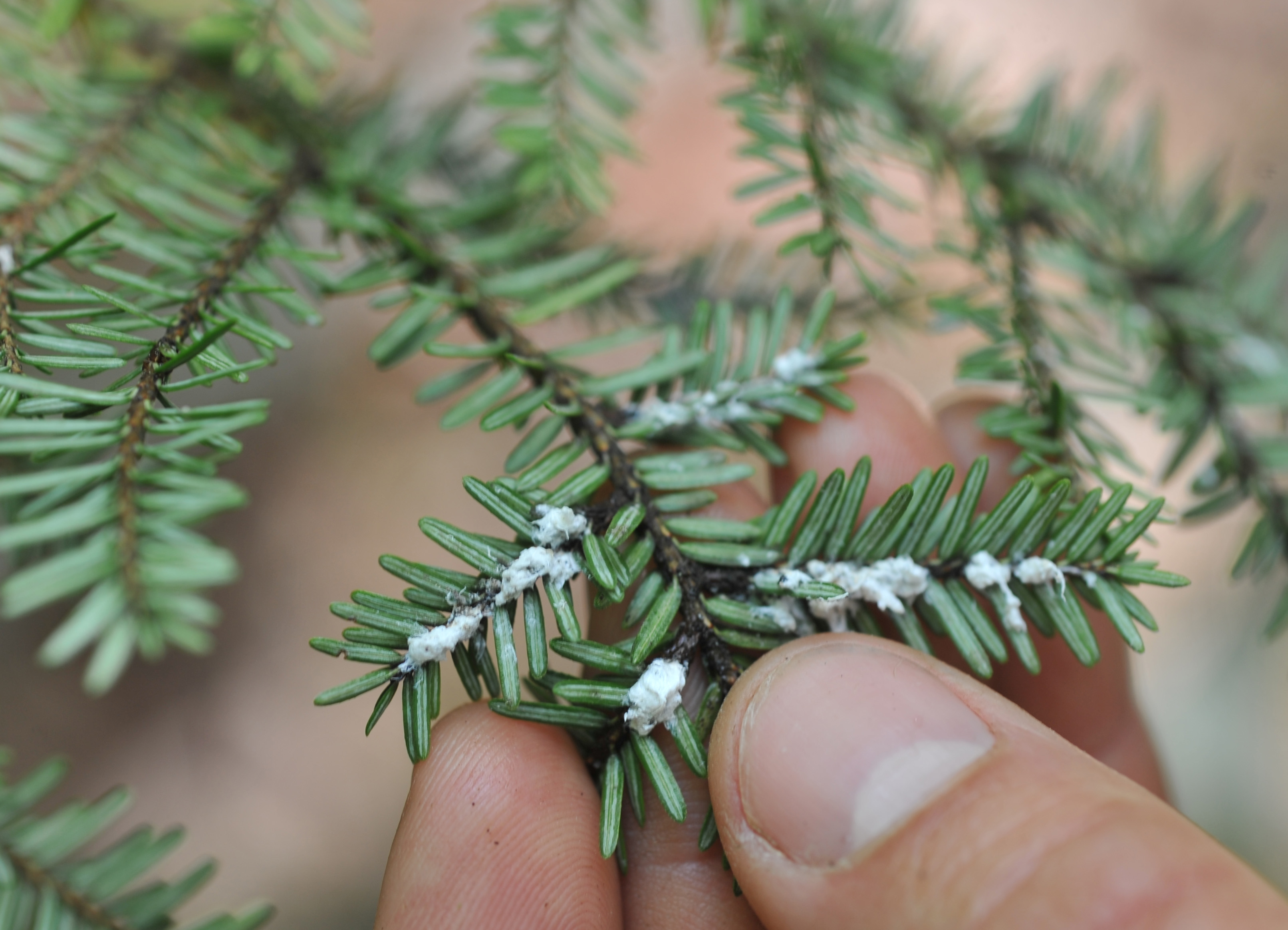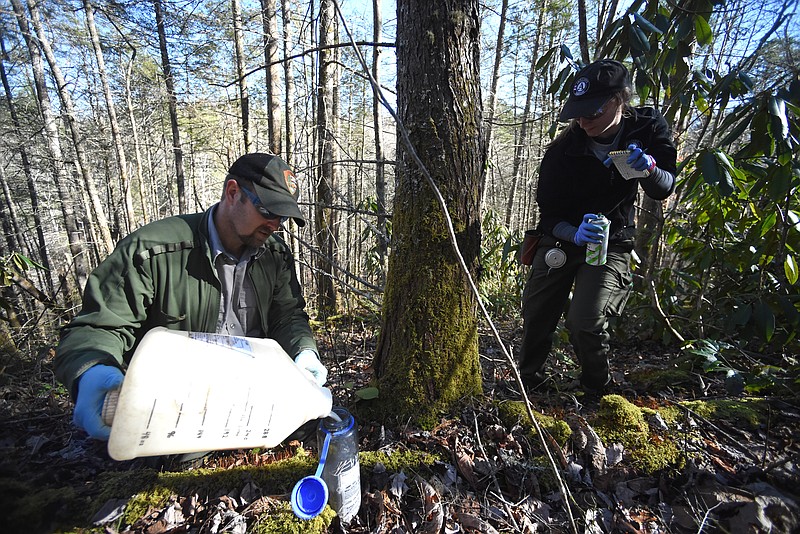 National Park Service forester Jesse Webster shows woolly adelgid ovisacs that are infesting the needles of a hemlock tree in the Greenbriar section of the Great Smoky Mountains National Park. One of the primary methods to combat the woolly adelgid is the introduction of a predatory beetle that preys on the eggs of the adelgid.
National Park Service forester Jesse Webster shows woolly adelgid ovisacs that are infesting the needles of a hemlock tree in the Greenbriar section of the Great Smoky Mountains National Park. One of the primary methods to combat the woolly adelgid is the introduction of a predatory beetle that preys on the eggs of the adelgid.Other efforts
This isn’t the first time residents on the mountain have taken steps to deal with the woolly adelgid issue. Barbara Womack is chairman of the town of Signal Mountain’s Hemlock Conservation Task Force and vice chair of the town’s Tree Board, and she said the initial steps Signal took in 2013, in conjunction with the Tennessee Forestry Service, have looked promising.“The only viable solution to the adelgid is biological control,” said Womack. “It’s an evolving science. There’s no sure cure right now, but we’re definitely learning.”Portions of Walden’s Ridge, along with Green Gorge and swaths of the Smoky Mountains, have seen successful predatory beetle releases, and Womack said the Tennessee Forestry Service is working to make them a sustainable population to permanently keep the adelgid in check.Until the adelgids can be fully managed through the beetle program, the distribution of safe chemical treatment for the hemlocks will continue under the supervision and education of the forestry service, she added.
Woolly adelgids, beware. The hemlocks in Walden won't be your feeding ground for much longer, at least if the Tennessee Forestry Service and the Walden Board of Mayor and Aldermen have anything to say about it.
Walden unanimously passed a resolution to form a partnership with the state of Tennessee for the treatment, management and care of the town's hemlock trees affected by the parasite. The adelgid is a beetle that feeds by drinking the sap from hemlocks and spruces, often killing the trees.
The resolution initiated the first part in a multistep process between the town and the state. The first stage will be a survey of the affected land, starting with the McCoy property, by the Tennessee Forestry Service to assess the needs and what will have to be done.
The assessment stage will be of no cost to the town. The state has access to federal funds to assess the property and pay for the treatment, officials said.
The assessment is expected to begin in April.
"If we think outside Walden, we're connected on the mountain and with the surrounding area," Alderman Lee Davis said at the recent town hall meeting. "The state wants us to be a model community that can share its success with other places around the state, and I think we're willing to do that."
Davis spearheaded the effort to join up with the state to deal with the adelgid problem.
The later stages of the plan will include spraying chemicals to kill the adelgids, as well as introducing a predatory beetle that will prey on the adelgids' eggs. Town officials stressed that both Walden and the Tennessee Forestry Service want to spray as little pesticide as possible in order to preserve the health of the environment.
Officials said both Falling Water and Green Gorge have seen successful results from the release of the beetles.
A large component of the measure will be an educational aspect in which the Tennessee Forestry Service will help inform the citizens of the town on how to manage the adelgid problem.
"The more involved we are, the more involved they will be," Davis said. "They're going to train Walden how to do more properties up here."
The adelgid problem has grown into an extremely serious one for the Southeast over the last decade. Numerous towns and communities have seen their hemlock populations completely vanish in the adelgids' wake. One resident at the meeting said that every hemlock at the McCoy could have died in the next few years if not for this program, and the other attendees wholly agreed.
